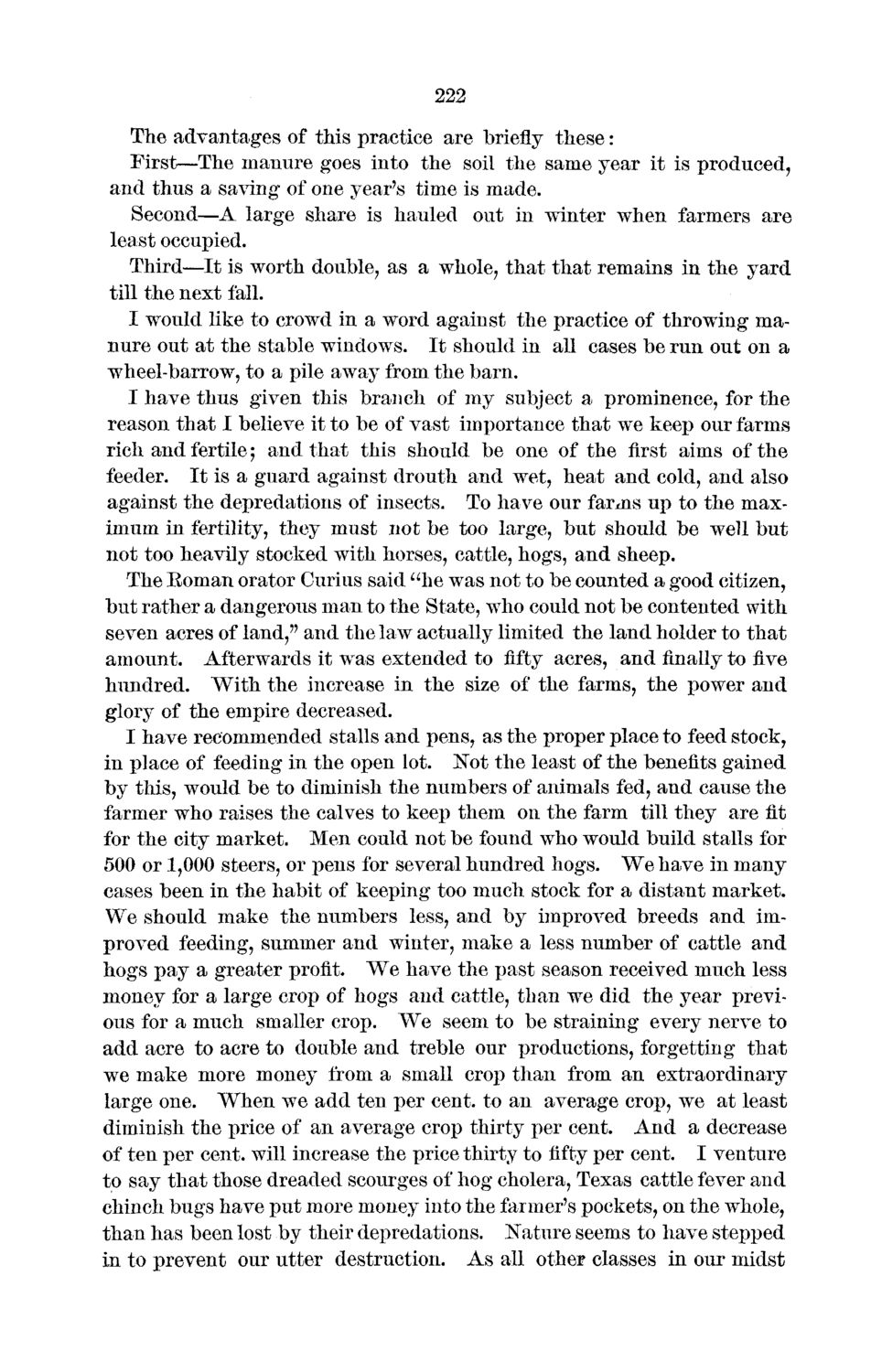| |
| |
Caption: Board of Trustees Minutes - 1872
This is a reduced-resolution page image for fast online browsing.

EXTRACTED TEXT FROM PAGE:
222 The advantages of this practice are briefly these: First—The manure goes into the soil the same year it is produced, and thus a saving of one year's time is made. Second—A large share is hauled out in winter when farmers are least occupied. Third—It is worth double, as a whole, that that remains in the yard till the next fall. I would like to crowd in a word against the practice of throwing manure out at the stable windows. It should in all cases be run out on a wheel-barrow, to a pile away from the barn. I have thus given this branch of my subject a prominence, for the reason that I believe it to be of vast importance that we keep our farms rich and fertile ; and that this should be one of the first aims of the feeder. It is a guard against drouth and wet, heat and cold, and also against the depredations of insects. To have our farms up to the maximum in fertility, they must not be too large, but should be well but not too heavily stocked with horses, cattle, hogs, and sheep. The Eoman orator Curius said "he was not to be counted a good citizen, but rather a dangerous man to the State, who could not be contented with seven acres of land," and the law actually limited the land holder to that amount. Afterwards it was extended to fifty acres, and finally to five hundred. With the increase in the size of the farms, the power and glory of the empire decreased. I have recommended stalls and pens, as the proper place to feed stock, in place of feeding in the open lot. Not the least of the benefits gained by this, would be to diminish the numbers of animals fed, and cause the farmer who raises the calves to keep them on the farm till they are fit for the city market. Men could not be found who would build stalls for 500 or 1,000 steers, or pens for several hundred hogs. We have in many cases been in the habit of keeping too much stock for a distant market. We should make the numbers less, and by improved breeds and improved feeding, summer and winter, make a less number of cattle and hogs pay a greater profit. We have the past season received much less money for a large crop of hogs and cattle, than we did the year previous for a much smaller crop. We seem to be straining every nerve to add acre to acre to double and treble our productions, forgetting that we make more money from a small crop than from an extraordinary large one. When we add ten per cent, to an average crop, we at least diminish the price of an average crop thirty per cent. And a decrease of ten per cent, will increase the price thirty to fifty per cent. I venture to say that those dreaded scourges of hog cholera, Texas cattle fever and chinch bugs have put more money into the farmer's pockets, on the whole, than has been lost by their depredations. Nature seems to have stepped in to prevent our utter destruction. As all other classes in our midst
| |